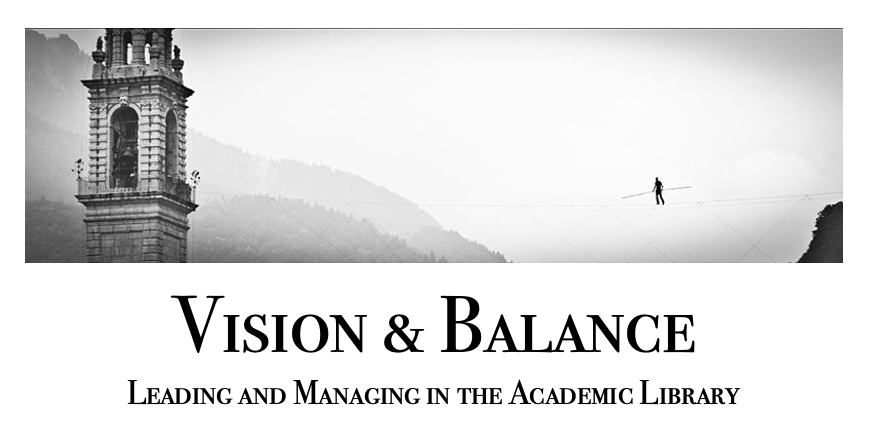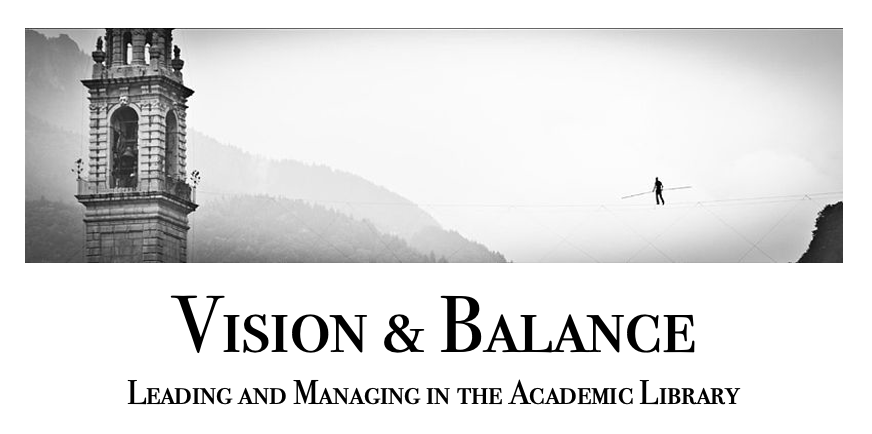Innovation, Part 1: Innovation is Value-Neutral
Innovation, like change more generally, is neither good nor bad in itself. The question is: does the innovation in question make things better?

Sometimes I get a little worried when I listen to the professional discourse in the library world around the concept of innovation. My worry is that we may be starting to see it as something that is inherently good and worthy of pursuit – as if doing new things, or doing old things in new ways, is always a good thing. Or, worse, as if innovation is a goal to be pursued in itself.
It isn’t.
Innovation is a category of change – and change is value-neutral. In other words, change itself is neither good nor bad; it may be either, or it may be neither. Innovation is one particular kind of change, and I think the reason it benefits from a halo effect is that so much positive change over the past century or so really has been of the innovative kind: either old things done in new and better ways (the telegraph giving way to telephones and faxes giving way to email) or entirely new things that have solved longstanding problems (air travel, cures for diseases, etc.). But some innovations aren’t better – they’re just new. Even positive change is almost always a mixed bag, and some innovations represent, on balance, something both new and worse. The development of the hydrogen bomb was, incontrovertibly, an innovation; so was the invention of waterboarding. And air travel and email have both brought with them new problems even as they've solved old ones.
So I’d like to see us treat the idea of innovation a bit more critically. In my library, I’m not interested in seeing innovation itself, necessarily – I’m interested in seeing improvement. Improvement might involve doing new things, or it might mean doing old things in new ways, both of which represent different kinds of innovation. But such innovations only represent improvement if they entail doing new things that really need to be done, or doing old things in better ways. In both scenarios, what matters is not the newness of the activity, but the fact that the new activity represents something better. An unnecessary new activity, or change to an existing process that doesn’t improve its effectiveness and efficiency, isn’t more necessary or more effective or more efficient for being innovative. And, of course, all innovations bring with them unintended consequences that may, in some cases, be negative enough to fully offset the benefits they also bring.
Now, I realize that many of you reading this piece are likely saying to yourselves “Well, duh, Rick – no one thinks innovation is a good thing unless it actually makes things better.” And that may be true, but my concern is that such critical and qualified thinking doesn’t seem to be reflected in much of the professional rhetoric I hear around innovation. Instead, I feel like we regularly invoke innovation as a goal to be pursued as if it were good in itself. I’m not going to cite any specific examples because I’m not interested in criticizing any particular individuals or organizations – I just want to focus on the issue itself.
So how should we think about innovation? Here are three suggested action items:
Takeaways and Action Items
- Don’t settle for easy talk of “innovation” in your organization. When the term is used, get more specific:
- What do we want to change?
- How do we want to change it?
- What problem(s) will this change solve?
- What would be some likely unintended consequences of this change?
- Provide material and cultural support in your library for innovative improvement. Instead of encouraging innovation as an end in itself, do what you can to reward improvements – in services, in processes, in management practices, etc. Support improvement and you will be encouraging exactly the kind of change you want to see, some of which will turn out to be innovative.
- Ask yourself: “What needs to change for the better in my organization? What can I do to creat a culture in my library that will foster and nurture that kind of change?"
